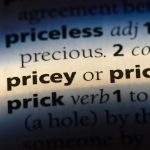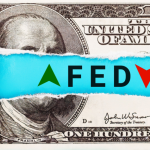:max_bytes(150000):strip_icc():format(jpeg)/GettyImages-534055580-aa41392b3e9d4d87a7c0797ceecf2612.jpg)
andresr / Getty Images
Reviewed by Cierra MurryFact checked by David RubinReviewed by Cierra MurryFact checked by David Rubin
While index mutual funds have been beneficial for investors who invest small amounts regularly, exchange-traded funds (ETFs) offer an additional way for investors to gain broad exposure to the market without choosing individual stocks.
Key Takeaways
- For investors who save each month or with every paycheck, exchange-traded funds (ETFs) are an option.
- ETFs operate similarly to index mutual funds.
- Compared to index mutual funds, ETFs tend to be lower-cost, more liquid, and tax-effective.
ETFs vs. Mutual Funds
ETFs and index mutual funds allow individuals to invest in many sectors. Both funds introduce investors to sector trading in technology, financial services, energy, utilities, or consumer staples.
For those who invest weekly or monthly in a retirement plan, many investors default to mutual funds for 401(k) retirement accounts. However, ETFs are another 401(k) option with their low fee structure and may benefit an investor’s portfolio.
Important
In January 2024, the U.S. Securities and Exchange Commission (SEC) approved the first eleven spot bitcoin ETFs in the United States, listed on NYSE Arca, Cboe BZX, and Nasdaq. On May 23, 2024, the SEC approved the application of the same exchanges to list spot ether ETFs on their exchanges.
Expense Ratios
Funds charge their customers fees based on a percentage of the total assets under management (AUM). Commonly known as the expense ratio, this charge covers overhead, such as salaries and operating and marketing expenses.
ETFs tend to have a lower expense ratio, as their costs are lower by design. Over time, this cost differential, while small, can add up to a significant amount due to the power of compounding.
Taxes
Index funds, especially the actively managed ones, incur taxable events for their investors when they sell shares of companies they own for a profit, usually annually. Fund owners pay capital gains taxes on any gains that are reported.
Investors in ETFs do not incur any capital gains until they sell shares in the fund and are liable for taxes if the selling price is higher than their purchase price. With ETFs, investors can control when they incur a taxable event.
Minimum Investment
Many index funds require shareholders to open an account with a minimum investment. For example, many Vanguard index funds have $3,000 minimums. Some index funds also require investors to maintain a minimum investment level to avoid a maintenance fee.
ETFs do not have any minimum investment size. The minimum that an investor must pay to buy an ETF is the price of one share of the ETF plus any commissions and fees.
When buying or selling ETFs, it is a good idea to use limit orders to gain control over trade prices. Index funds, on the other hand, are priced at the close of the day, which is the price that investors will pay if they decide to buy them.
Fees and Commissions
The primary disadvantage of ETFs is the cost to buy and sell the shares, as they are traded like stocks. The costs can vary depending on the broker.
Index funds may not charge a fee to buy shares, even in small amounts. However, the fund may charge an annual management fee to sell shares of the index fund. Other funds, especially those sold through a broker, may carry a commission known as a load.
How Do Zero Commission Trades Affect ETFs?
As more brokers shift to zero-commission trades, ETFs have become an even more attractive way to make periodic investments.
What Are Assets Under Management?
Assets under management (AUM) is the total market value of the investments managed by a financial entity on behalf of investors. Assets under management depend on the flow of investor money in and out of a fund. The SEC requires firms to register with the SEC when AUM ranges between $25 million to $110 million, depending on several factors, including the size and location of the firm.
How Does the Bid-Ask Spread Affect an ETF?
When buying or selling any stock or ETF, the spread between the buying price and the selling price is known as the bid-ask spread. The wider the spread, the more the investment must grow to overcome the higher purchase price and the lower selling price. Spreads on ETFs depend on the liquidity and volume of trading. Widely traded ETFs will have narrower spreads, while those that experience fewer trades can have large spreads.
The Bottom Line
When making periodic investments, a long-term perspective is valuable. ETF investors must decide what sector or sectors they’d like exposure to. Selecting the right sector can make a significant difference in the performance of a portfolio. ETFs generally have lower costs than index funds, but the expense to buy and sell shares can add up, as investors incur a transaction cost on each order to purchase or sell.
Read the original article on Investopedia.




